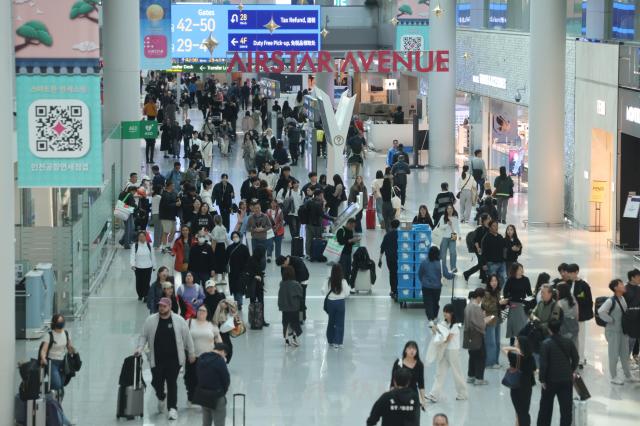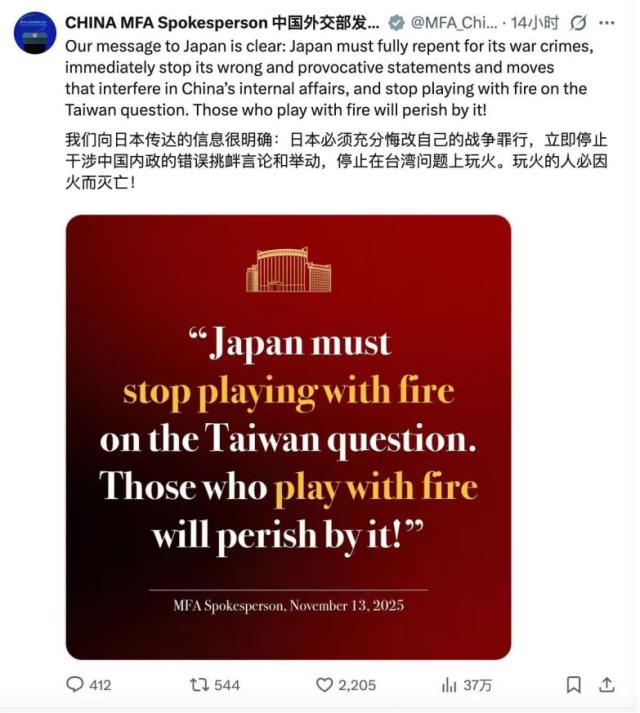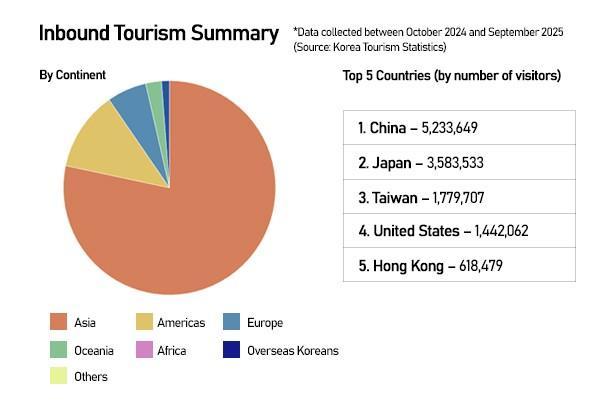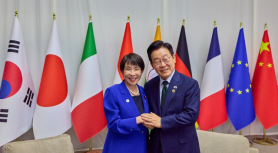
SEOUL, November 20 (AJP) - Korean travel agencies and the industry are bracing up to seize a potential boon from the fallout and escalating hostility between China and Japan over remarks by Japanese Prime Minister Sanae Takaichi in early November on a potential Taiwan contingency that have led to a series of boycott-driven cancellations.
Nearly 500,000 Chinese travelers have reportedly canceled Japan-related bookings — 32 percent of all Japan-bound reservations — after Beijing issued a warning against travel to Japan. Independent aviation analyst Li Hanming said cancellation rates surged to 82.1 percent on Sunday and 75.6 percent on Monday, noting that "the number of cancellations was 27 times higher than new bookings — a flurry of withdrawals unseen since the early months of the COVID-19 pandemic."
Chinese travel agencies, in compliance with the state advisory, are offering full refunds for canceled Japan tour packages.

Korea has quickly emerged as the top alternative destination in the region. Data released Sunday by Chinese travel platform Qunar showed Korea ranking first among overseas destinations for Chinese travelers over the weekend of November 15 to 16, overtaking long-time No. 1 Japan. Korea also led in flight payments and travel-related search volume, with Seoul recording the highest number of queries. Thailand, Hong Kong, Malaysia, Singapore, Vietnam, and Indonesia followed.
The travel disruption stems from remarks Prime Minister Takaichi made during a parliamentary budget committee session on November 7, in which she suggested that a Chinese blockade of Taiwan — and subsequent U.S. military intervention — could constitute an "existential crisis" for Japan and potentially invoke Japan's right to collective self-defense. Beijing demanded an immediate retraction and issued a de facto travel ban urging citizens to avoid Japan from November 14 after Tokyo refused.

Korea stands to benefit most on the tourism front, as Chinese and Japanese travelers together make up nearly half of foreign arrivals. According to the Korea Tourism Organization's Data Lab, of 18,316,412 foreign visitors to Korea between October 2024 and September 2025, 5,233,649 were from China and 3,583,533 from Japan — a combined 48.1 percent of all inbound travelers.
"We are carrying out our annual plans as scheduled. For the Chinese market, we are continuing pre-planned promotions targeting the winter vacation period and long holidays, particularly through online campaigns," said a spokesperson for the Korea Tourism Organization, adding that it was too early to assess the direct impact of China's travel advisory.
Still, the travel industry is bracing up for a potential surge in traffic during the year-end holiday season and leading up to the Lunar New Year.
Korean Air recently formed a strategic partnership with Chinese online travel giant Ctrip, part of the Trip.com Group, which has more than 300 million registered users. Korean Air already operates the largest number of Korea–China routes among carriers from both countries. As of August this year, the airline operates over 200 weekly flights between the two nations.
Copyright ⓒ Aju Press All rights reserved.



![[FOCUS] S. Korea under pressure to take inevitable choice against military buildup by China and Japan](https://image.ajunews.com/content/image/2020/11/12/20201112144822908694_278_163.jpg)